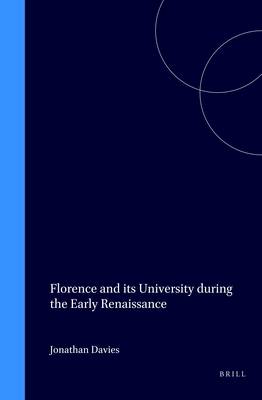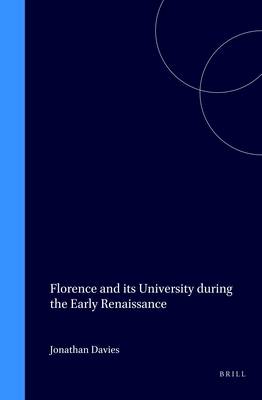
- Afhalen na 1 uur in een winkel met voorraad
- Gratis thuislevering in België vanaf € 30
- Ruim aanbod met 7 miljoen producten
- Afhalen na 1 uur in een winkel met voorraad
- Gratis thuislevering in België vanaf € 30
- Ruim aanbod met 7 miljoen producten
Zoeken
Omschrijving
This book makes a substantial contribution to the study of Florentine history. It answers an important but hitherto unresolved question: why did the Florentine Republic keep a university in its capital city between 1385 and 1473 rather than follow the example of other Italian states in maintaining a university in a subject town?
Based on a wide range of newly-found sources, it discloses that the University owed its survival to the support of the Florentine elite, especially the Medici family and its followers. It reveals systematically the close ties between the University and major developments in the social, economic, political, ecclesiastical, and cultural life of Florence and Florentine Tuscany.
The appendices fill some of the greatest gaps in our knowledge of the University, identifying administrators, students, examiners, and teachers.
Based on a wide range of newly-found sources, it discloses that the University owed its survival to the support of the Florentine elite, especially the Medici family and its followers. It reveals systematically the close ties between the University and major developments in the social, economic, political, ecclesiastical, and cultural life of Florence and Florentine Tuscany.
The appendices fill some of the greatest gaps in our knowledge of the University, identifying administrators, students, examiners, and teachers.
Specificaties
Betrokkenen
- Auteur(s):
- Uitgeverij:
Inhoud
- Aantal bladzijden:
- 232
- Taal:
- Engels
- Reeks:
- Reeksnummer:
- nr. 8
Eigenschappen
- Productcode (EAN):
- 9789004110038
- Verschijningsdatum:
- 2/07/1998
- Uitvoering:
- Hardcover
- Formaat:
- Genaaid
- Afmetingen:
- 166 mm x 243 mm
- Gewicht:
- 585 g

Alleen bij Standaard Boekhandel
+ 616 punten op je klantenkaart van Standaard Boekhandel
Beoordelingen
We publiceren alleen reviews die voldoen aan de voorwaarden voor reviews. Bekijk onze voorwaarden voor reviews.








